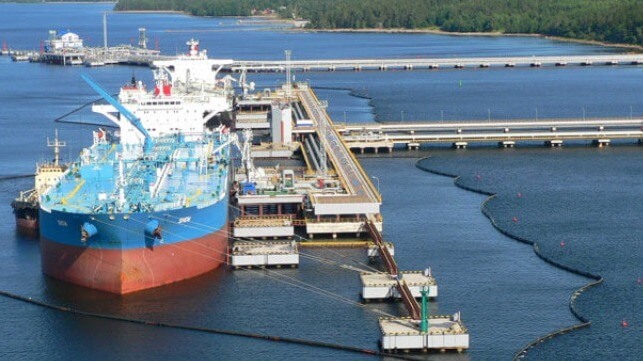Russia Finds Plenty of Tonnage for Crude and Refined Product Exports

Russia appears to be having little difficulty finding the tonnage it needs to support its petroleum exports, despite restrictive Western sanctions and price limits. In both crude and clean tanker segments, Russian energy exporters are loading and shipping as much as ever.
According to tanker shipbroker Gibson, Russia has been "relatively successful" in finding vessels to carry its refined products after the EU import ban in February. Thanks in part to "notable changes in ownership of the product tanker fleet" - for example, the shifting of Sovcomflot's foreign-flag fleet to a Dubai-based holding company - over 120 MRs and handysize tankers have been involved in Russian refined product exports since the ban took effect, along with at least 21 LR2s, according to Gibson.
Thanks to the willingness of these shipowners, with some help from a limited number of Western shipping service providers, Russia exported more clean products in February than its average volume last year, before the ban. Gibson is aware of more clean tankers heading for Russian load ports in the coming week.
"Dark" fleet, opaque standards sustain crude flows
Russian crude oil exports are about as voluminous as ever, thanks to booming sales to China and India. China is able to import some Russian crude oil by cross-border pipeline, but a large share comes by sea, including shipments from the Russian Pacific oil terminal at Kozmino. India is absorbing a massive share of the oil that Russia used to sell into the EU market - to the tune of some two million barrels per day, according to Kpler.
"In a sense, it's not much of a change, because it's only a reshuffling of what was flowing where initially. Europe was buying this. Now India is buying this," Kpler analyst Viktor Katona told Insider.
About half of the flow is carried aboard tankers tied either to Russia or to the "dark fleet" of gray-market tonnage. The growth of the lucrative "dark" segment has reached the point that fully one fifth of the world's 900 VLCCs are officially "up to no good," according TankerTrackers.com, a leading authority in the art of uncloaking tanker movements. Based on AIS tracking, satellite imaging and on-the-ground photography, the consultancy has identified 174 VLCCs that are engaged in carrying Russian, Venezuelan or Iranian oil in spite of U.S. and EU sanctions measures.
For the other half of Russia's export volume, sanctions-compliant Western tonnage provides much of the rest of the needed capacity. This is allowable under EU rules, so long as the oil is priced under $60 per barrel. - but the extent of compliance or non-compliance is challenging, since the price cap has no reporting requirements. A recent study led by researchers at Columbia University called for audits to determine whether Western insurers, shipowners, brokers and others are sticking with the rules, especially as market data indicates that the G7 price cap is routinely exceeded.
No comments:
Post a Comment